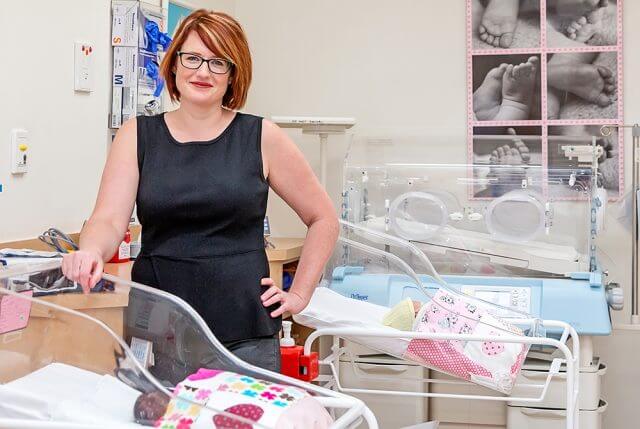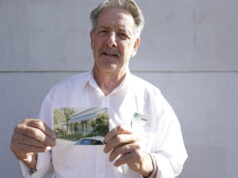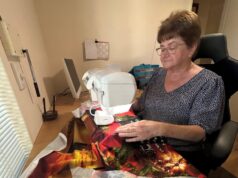
Ensuring babies have the best possible start to life is all in a day’s work for Armadale Health Service clinical midwife Belle Sexton but the difference she makes to the antenatal care of women in the Supporting Those At Risk program has been recognised as significant. Robyn Molloy caught up with her to discuss the program.
The welfare of pregnant women and their newborns is at the heart of the STAR program, run as part of the Armadale Health Service’s antenatal programs.
It offers services to mums-to-be who may be involved in drug and alcohol use, are victims of domestic violence, have mental health issues or are in contact with the Department of Child Protection.
Starting as an antenatal care service for about 40 girls under the age of 17 in 2010, it expanded into the STAR program in 2013.
The clinic saw 255 women last year with women of all ages and backgrounds coming from across WA including Christmas Island and Northam for the service via referrals.
The program’s coordinator Belle Sexton has been named a finalist in the WA Nursing and Midwifery Excellence Awards run by the WA Health Service for her work with the clinic.
“It is a continuity of care service so they get the same midwife and it is a collaborative thing with social workers, mental health support and an obstetrician and we tailor the antenatal care for that individual circumstance,” she said.
“They get support for education, specialised education around what their issues are.
“We work closely with organisations such as the Gosnells Women’s Health Service, Communicare, so we talk to each other about any one we are worried about.
“We talk with DCP, the Mead Centre and other mental health organisations.”
One of the achievements of the program has been a rise in clinic attendance rates during pregnancy.
“The national standard is five attendances and it used to sit below that for women with drug and alcohol use or women with Department of Child Protection involvement,” she said.
“So they have to attend a minimum of five visits as a standard of antenatal care and our women now attend an average of 7.5 visits.”
Ms Sexton said other outcomes included increases in birth weight and decreases in the time spent in hospital.
“We have seen a slight increase in birth weight so less babies are getting born that are under 2500 grams,” she said.
“There is decreased nursery stay and increased satisfaction, because they have got someone to go to, and increased staff satisfaction because we have put a lot in place for staff satisfaction as well.”
Ms Sexton said while it was difficult to get some of the woman to attend appointments, she said any contact they had with the clinic was positive.
“It can be very challenging sometimes and we spend a lot of time texting, phoning, trying to get women in and you set these things up … I will get people to do me favours so I can get a specialist appointment and an ultrasound and another appointment all on the same day … and the woman doesn’t show up.
“So it can be frustrating and challenging.”
Ms Sexton said once the women have attended the clinic twice they usually see the value.
“They realise it is not so bad because we are non judgemental,” she said.
“We are just really honest with them and totally transparent.
“We are just really nice to them and that’s what any woman or mother wants is some understanding and to be treated like a mother.
“It doesn’t matter what the outcome might be, they might not go home with that baby but they are still a mum and we try to portray that.
“I think they know we put a lot of effort in.
“We follow up with texts, just to see how they are going and just engage them.
“We treat them with respect and let them know that someone is caring about them.”
The women remain in the program until up to five days after giving birth.
She said the woman speak highly of the clinic, which leads to more referrals.
“That’s what you want, women wanting to engage in care that normally wouldn’t.”
Ms Sexton said she loved her role.
“I work with an amazing team of midwives, doctors, social workers, everybody, it is a team effort and works well,” she said.













